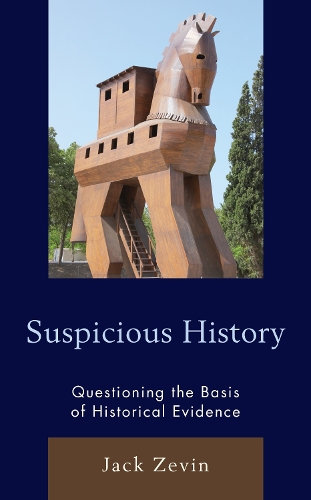
Suspicious History: Questioning the Basis of Historical Evidence
(Paperback)
Publishing Details
Suspicious History: Questioning the Basis of Historical Evidence
By (Author) Jack Zevin
Bloomsbury Publishing PLC
Rowman & Littlefield Publishers
15th April 2021
United States
Classifications
Professional and Scholarly
Non Fiction
Teaching skills and techniques
Teaching of a specific subject
Educational: Social sciences, social studies
907.1
Physical Properties
Paperback
176
Width 155mm, Height 219mm, Spine 11mm
290g
Description
Suspicious aims at providing teachers and students of history and related social sciences with ideas for critical thinking about past and present applied to documentation, images, and historical writing. Issues of perspective, bias, storytelling, patriotism and heroism, as well as interpretation are distributed among different chapters, along with guidance for making discussion provocative and involving, in light of principles for rethinking history.
Reviews
Suspicious History challenges contemporary history instruction by providing clear guidance regarding how to teach history in a more thoughtful way. Those who apply these ideas will be teaching in the best tradition of social studies education. This book provides rational and practical means to achieve more powerful and thoughtful history education. -- Ronald Banaszak, editor in chief, The Social Studies Journal
Jack Zevin is an educational heretic and that is a good thing and a great strength of his latest book. Instead of celebrating the latest innovations, he points out that good history teaching, good social studies, has always focused on student analysis of primary and secondary sources and putting together the puzzle of the past to understand the present. If we had been teaching history and social studies this way for the past sixty years, maybe the world and the United States would not be in the predicaments we find ourselves in as we move through the third decade of the 21st century. -- Alan Singer, professor of secondary education and director of social studies education, Hofstra University; author of "Education Flashpoints, Fighting for Americas Schools"
Author Bio
Jack Zevin is a lifelong student and teacher of history and the social sciences with an expertise in social studies education. He is an advocate for interactive and critical thinking methods of thinking about history in the Socratic tradition of questioning everything.
